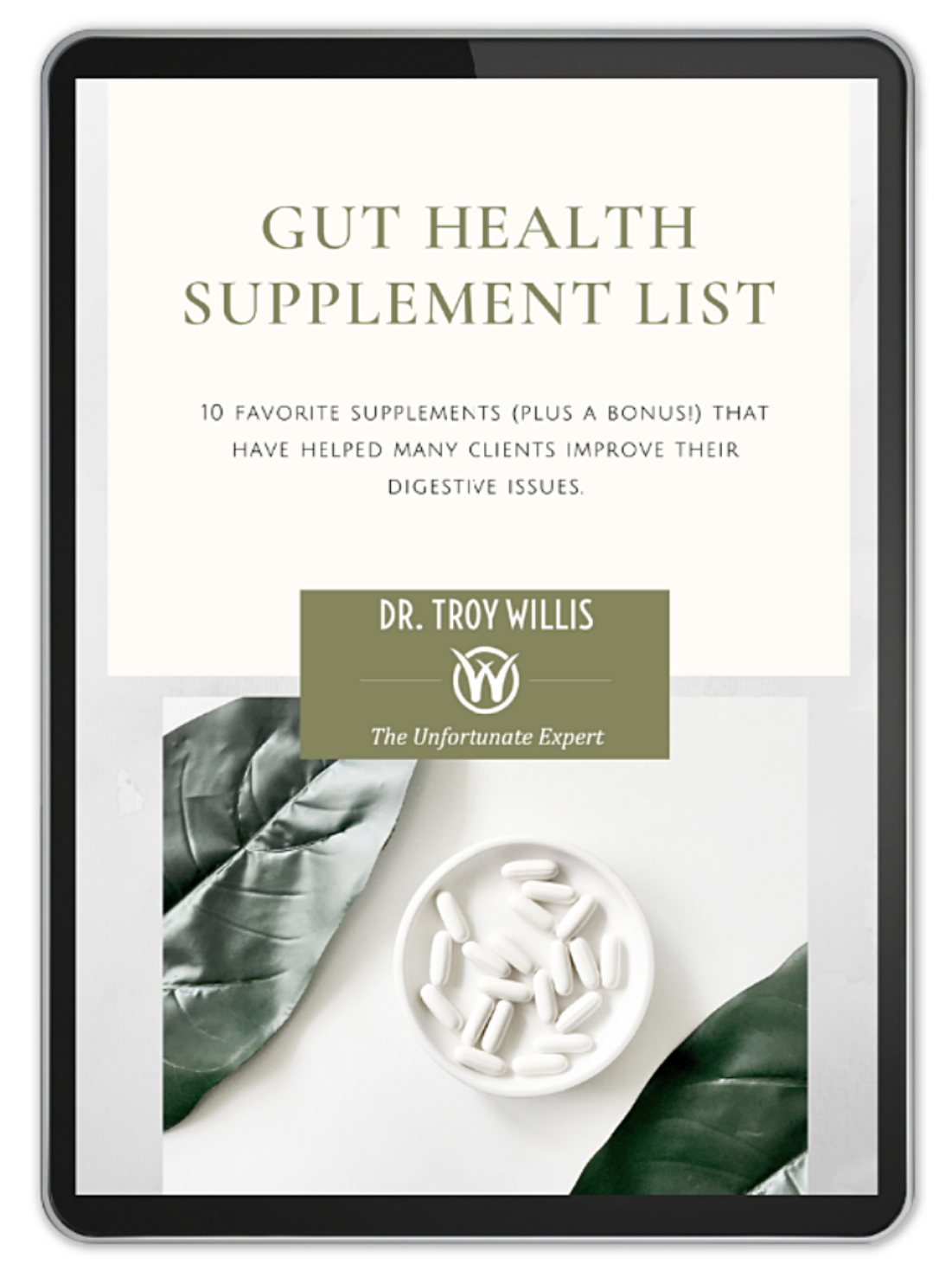I remember back in the day when I first started eating dairy-free and gluten-free in an effort to ease my digestive issues. It was sometimes really hard to find foods I could eat!
But today is a totally different story! The food options for people with digestive issues and food sensitivities just seem to be growing. There are now entire aisles at some grocery stores dedicated to foods for just about any diet. There are options for vegans and vegetarians, gluten-free, dairy-free, and low-FODMAP options.
It can be easy to find what you need if you know WHAT you need. But what if you don’t have a diagnosis? How do you know where to start?
The writing on modern food sensitivities is extensive, so I won’t go into too much detail here, but below are some well-known culprits.
 Gluten
Gluten
Gluten is a protein that can trigger issues in the small intestine. For people with celiac disease, gluten is especially harmful, affecting the body’s ability to absorb important nutrients. Some studies have shown that patients with IBD benefit from a gluten-free diet. These studies, though not extensive, showed that patients with IBD symptoms experience relief after adopting a gluten-free diet.
 Sugar
Sugar
Everyone knows that too much processed sugar isn’t good for you. You might clean up your diet and get rid of sweet treats and sodas, but there are often sneaky, hidden sugars in foods like salad dressing and soup! Too much processed sugar can have a negative effect on gut bacteria and that impact can create an imbalance of the bacteria needed for proper digestion. Sugar can also cause hormone imbalances that affect digestion and can wreak havoc on your body by triggering inflammation.
With that said, don’t be afraid of sugar in its natural form (honey, maple, syrup, cane sugar). Sugar in its cleanest forms, and in moderation, actually aids in digestion and powers our systems with minimal effort from your digestive system to break it down. Natural sugars are all a much better choice than artificial sweeteners.
 Dairy
Dairy
Although many dairy products contain important vitamins like Calcium and Vitamin D, dairy can be one of the biggest culprits for distress on the digestive health journey. Just like gluten and sugar, dairy can cause inflammatory responses in the body that trigger digestive issues. It can also be just as tricky because dairy can hide under other names like whey and casein.
Now What?
So, what does this mean for you? Should you just get rid of it all?
I’ve had many people come to me with digestive symptoms but no diagnosis. They know that something’s wrong, but they just aren’t sure what. Some of them are skeptical about “giving up” the foods they love and others are willing to try anything.
It’s important to get as clear a picture of your situation as possible. Eliminating everything isn’t helpful nor is it a sustainable way to eat long-term. And how do you know which foods are causing your issues and which your body is processing perfectly well?
This is where food journals and an involved, supportive team come in. It’s also where I can help with a more customized diet based on the scientific results of your Food Inflammation Test.
After a Food Inflammation Test, you may even be surprised to learn that you may not have to give up your favorite foods! Or you may be even MORE surprised that the foods you thought were fine (and that you may eat every day!) are the ones behind your issues.
If you suffer from digestive symptoms like diarrhea, bowel urgency, cramping or bloating or have been diagnosed with Crohn’s Disease, Ulcerative Colitis, IBD (Irritable Bowel Disease) or IBS (Irritable Bowel Syndrome) and you’re tired of suffering, let’s talk.
I can offer you guidance, scientific testing, and support on this journey to gut health. I know I can help you feel better!
Schedule your free Telehealth consultation with me here and let’s create a plan that gets you where you want to be.
Happy healing!
Dr. Troy Willis
The Unfortunate Expert
















0 Comments